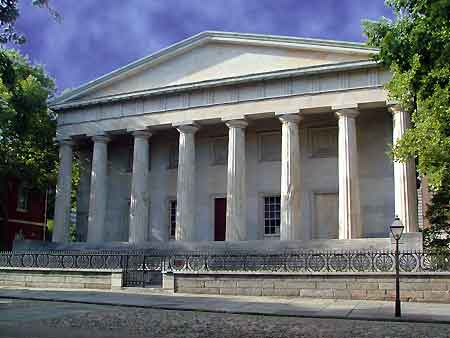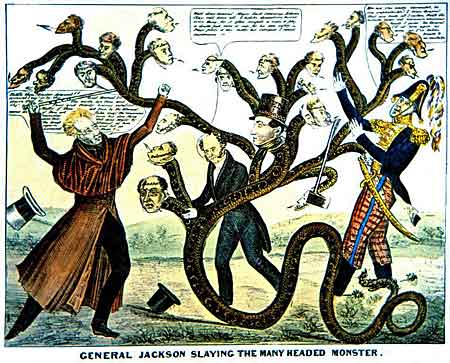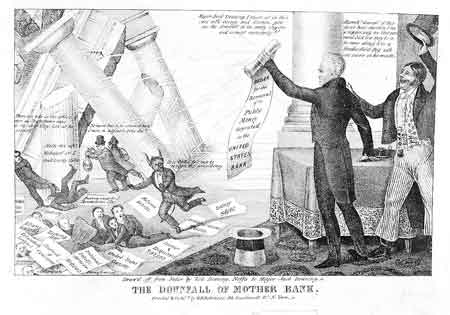MURDER, POLITICS, AND THE END OF THE JAZZ AGE
by Michael Wolraich
Order today at Barnes & Noble / Amazon / Books-A-Million / Bookshop

|
MURDER, POLITICS, AND THE END OF THE JAZZ AGE by Michael Wolraich Order today at Barnes & Noble / Amazon / Books-A-Million / Bookshop |

I AM NOT a Whig. I am not a Locofoco. I once belonged to a 'party now obsolete called the Democratic Party, a very good party until it was spoiled by Genl. Jackson. I am now only an American Citizen deeply concerned in the welfare [of and] very anxious about the character [of] the country.

. , . Here am I, who have taken a fancy to this Bank & having built it up with infinite care am striving to keep it from being destroyed to the infinite wrong as I most sincerely & conscientiously believe of the whole country. To me all other considerations are insignificant -- I mean to stand by it & defend it with all the small faculties which Providence has assigned to me. I care for no party in politics or religion -- have no sympathy with [Mr.] Jackson or [Mr.] Clay or [Mr.] Wirt[h] or [Mr.] Calhoun or [Mr.] Ellmaker or [Mr.] Van Buren. I am for the Bank & the Bank alone. [My emphasis] Well then, here comes [Mr.] Jackson who takes It Into his head to declare that the Bank had failed & that it ought to be superceded by some ricketty [sic.] machinery of his own contrivance. Mr Jackson being the President of the U.S. whose situation might make his ignorance mischeivous [sic.], we set to work to disenchant the country of their foolery & we have so well succeeded that I will venture to say that there is no man, no woman, & no child in the U.S. who does not understand that the worthy President was In a great error.
Is there no danger to our liberty and independence in a bank that in its nature has so little to bind it to our country? The president of the bank has told us that most of the State banks exist by its forbearance. Should its influence become concentered, as it may under the operation of such an act as this, in the hands of a self-elected directory whose interests are identified with those of the foreign stockholders, will there not be cause to tremble for the purity of our elections in peace and for the independence of our country in war? Their power would be great whenever they might choose to exert it; but if this monopoly were regularly renewed every fifteen or twenty years on terms proposed by themselves, they might seldom in peace put forth their strength to influence elections or control the affairs of the nation. But if any private citizen or public functionary should interpose to curtail its powers or prevent a renewal of its privileges, it can not be doubted that he would be made to feel its influence.
Should the stock of the bank principally pass into the hands of the subjects of a foreign country, and we should unfortunately become involved in a war with that country, what would be our condition? Of the course which would be pursued by a bank almost wholly owned by the subjects of a foreign power, and managed by those whose interests, if not affections, would run in the same direction there can be no doubt. All its operations within would be in aid of the hostile fleets and armies without. Controlling our currency, receiving our public moneys, and holding thousands of our citizens in dependence, it would be more formidable and dangerous than the naval and military power of the enemy
